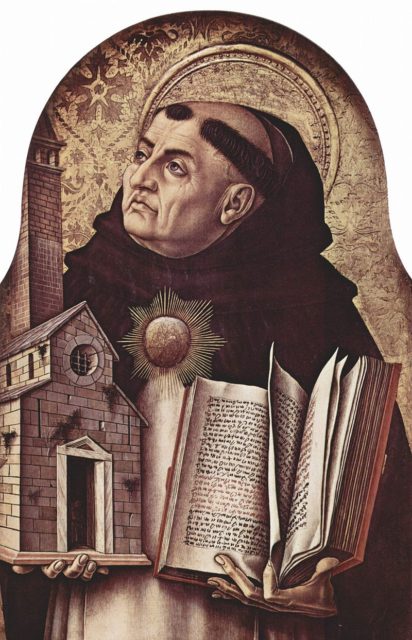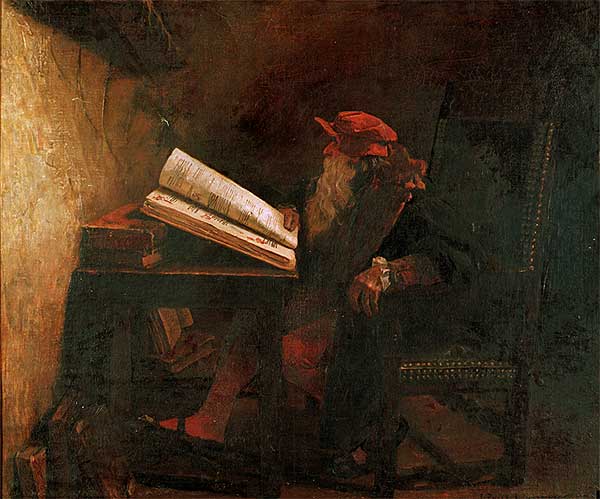In today’s law, suicide is not considered a crime. It is viewed as a sad and an unfortunate event, but it rarely has legal consequences.
However, in early English common law suicide was considered as “Felo de se,” Latin for “felon on himself.” The person found guilty of it, even though dead, was subject to various punishments including forfeiture of property to the monarch and being given a profane burial.

by Carlo Crivelli (15th century).
This perception of suicide was influenced by the philosophy of Thomas Aquinas, who posited that suicide was sinful for three reasons. Firstly, killing oneself violated the divine order, as the decision whether a person should live or die is in the hands of God. Secondly, suicide was a crime against the community, because killing oneself harms the community. Thirdly, the act of suicide is against natural law, because living beings have a tendency to preserve their own life.
A burial was considered “profane” when the body of the deceased was somehow desecrated to show disapproval of the person’s actions in life. Profane burials for people who committed the Felo de se usually took place at night, and people were often buried with a stake driven through their heart. They were never buried at a graveyard, but at a crossroads, with no priests or mourners present.

Remote crossroads were chosen as burial sites because they usually marked the boundaries of a town or a parish, and those who committed suicide were posthumously excommunicated, so there was no place for them at the local graveyards. The crossroads burials were also influenced by the rich English folklore.
In folklore and mythology, crossroads represent limbo, a location between two worlds, and a site where supernatural forces can be contacted. Deals with the Devil were also said to be made at the crossroads: the legendary Faust supposedly concluded his deal with the Devil at a dark forest crossroads.

Through crossroads burial suicides faced spiritual consequences for their actions: they were denied a proper burial in consecrated ground, which put their souls in jeopardy of being forever trapped in the purgatory.
Read another story from us: Ten crazy laws that ancient Romans lived by
Crossroads burial was officially abolished by an Act of Parliament in 1823. The last such burial took place at the crossroads of Lower Grosvenor Place and Grosvenor Place in London, on the site which is now the bus station at Victoria Station in London.